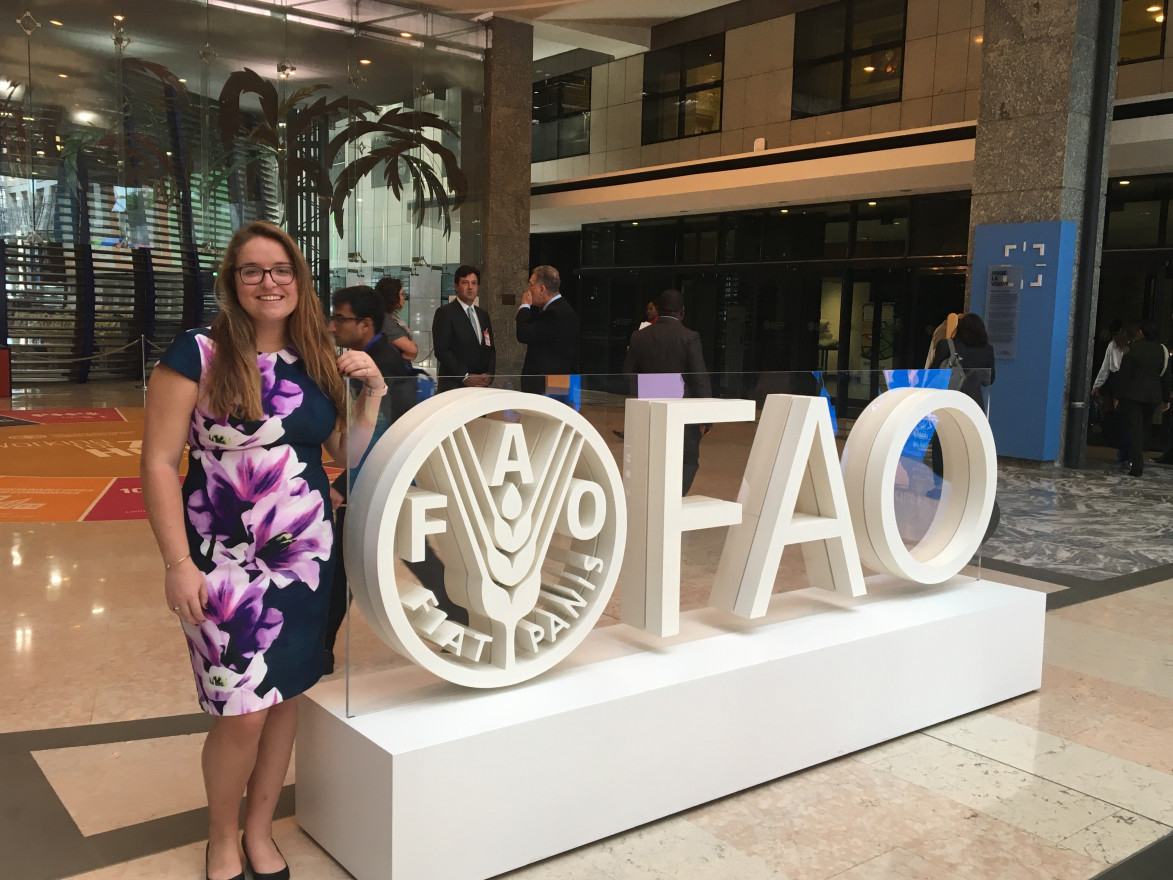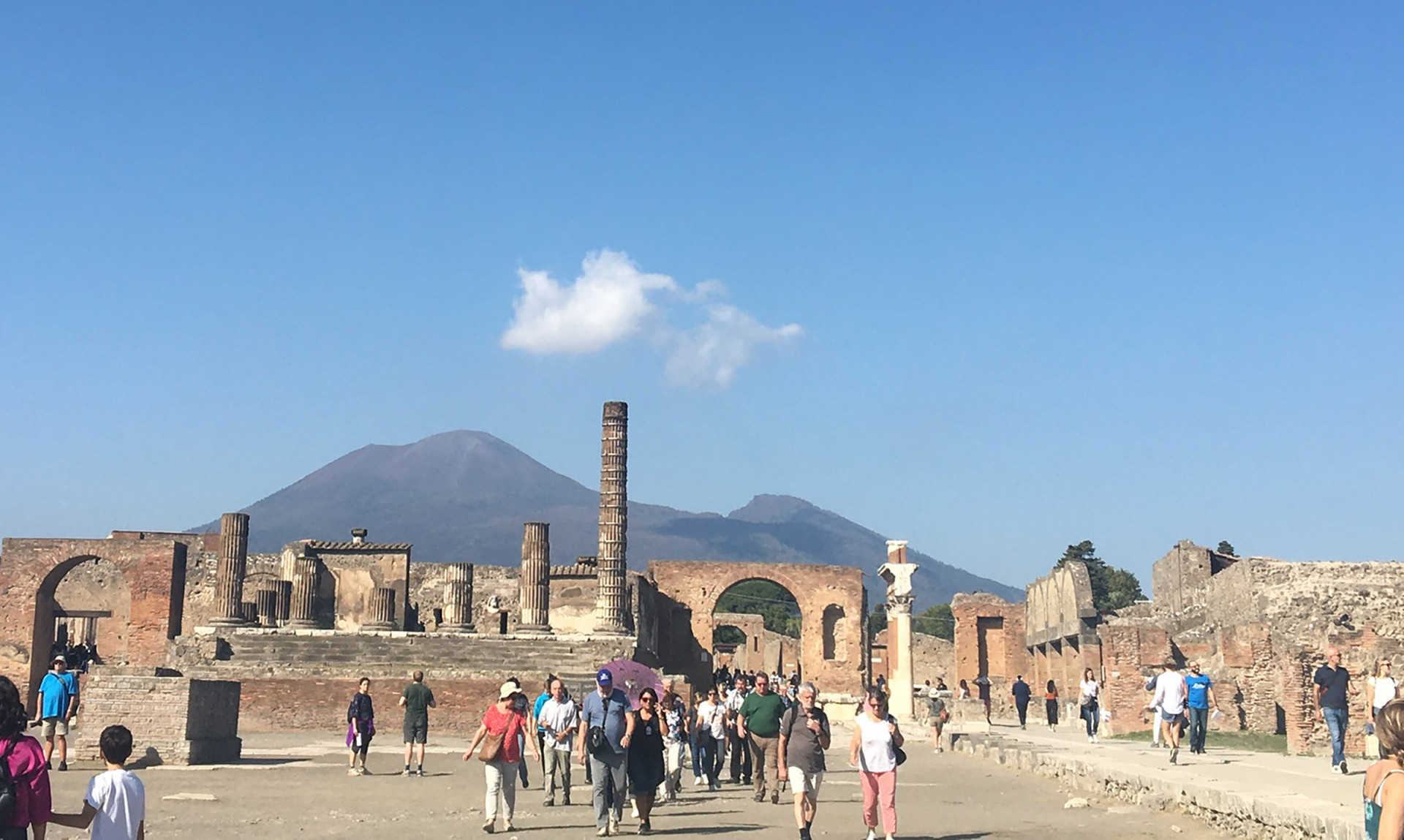
Matilda Kreider in the entrance hall to the Committee on World Food Security Conference at FAO headquarters in Rome. (Marisa Umeh/UC-Berkeley)

Matilda Kreider in the entrance hall to the Committee on World Food Security Conference at FAO headquarters in Rome. (Marisa Umeh/UC-Berkeley)
At the end of our time in Rome, I spent a day exploring the ancient city of Pompeii. As I admired frescoes and mosaics in houses built two thousand years ago, glancing up occasionally at Mount Vesuvius in the distance, it was hard not to think about all of the ways, both beautiful and disastrous, that humans interact with the environment. I wonder if the people of Pompeii had any idea that the land that sustained them – allowed them to grow food and make wine, to flourish under the Mediterranean sun – was about to undergo epic changes and bring an end to life as they knew it.

It was a fitting end to a week spent learning about human-environment issues from some of the world’s preeminent experts at the United Nations Food and Agriculture Organization’s 46th Committee on World Food Security. Just as Pompeii experienced a catastrophic environmental event in 79 A.D., we in 2019 are facing down climate change on a global scale. The difference is that unlike the unfortunate souls of Pompeii, we have advance warning and the tools to adjust how we interact with the environment – if only we can agree on how to do so.
Agriculture is one of the major contributors to the processes causing climate change, and it’s also incredibly vulnerable to the effects of climate change. The ways that we’ve manipulated the land to produce food are not sustainable if we want to continue living on this planet, and many delegates to the Committee on World Food Security seemed to acknowledge that. But at least in the sessions I attended, few speakers gave climate change the attention that it demands. The only climate change moment that stood out to me from the week was when an official from Nicaragua spoke to the plenary about how his nation is one of those most vulnerable to climate change despite contributing negligible greenhouse gas emissions. It was a powerful moment, but it was fleeting.
Spending a week with researchers and officials from around the world taught me so much about the issues we’re facing and what governments and institutions are doing to address them. Most of my personal interests in sustainability are focused on energy and climate, so it was an amazing opportunity to learn about issues that are unfamiliar to me and gain new research interests. But I did find myself wishing climate was more central to the week’s discussions of sustainable development, and my visit to Pompeii helped me realize why: none of our accomplishments in development will matter if our environment becomes inhospitable. We must address climate issues in every goal, plan, and agreement, even if the issue at hand seems far removed from climate change. If we don’t, we will be seeing more lost cities and civilizations in the future.
Thank you, Planet Forward and FAO, for this experience!